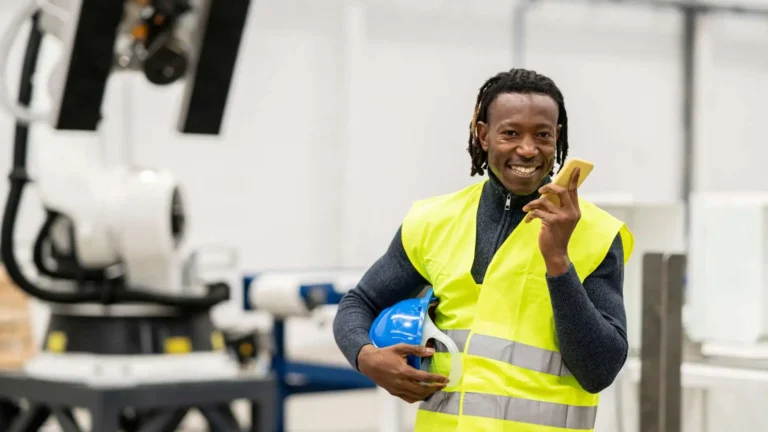Introduction: The Evolving Role of Production Leads in Manufacturing
Walk into any modern manufacturing facility and you’ll see a world that’s rapidly changing. Robotics whir on assembly lines, workers collaborate with digital dashboards, and efficiency is measured in real time. At the heart of this transformation are production leads-frontline leaders who combine hands-on know-how with people skills and a knack for problem-solving. Gone are the days when seniority alone earned you a supervisory badge. Today, climbing to a production lead role means upskilling, embracing technology, and learning to lead teams through constant change. If you’re ready to step up, here’s how to prepare for one of the most dynamic jobs in manufacturing.
Understanding the Production Lead Role
Core Responsibilities
A production lead is the glue that holds a manufacturing shift together. You’re responsible for:
- Overseeing Daily Operations: Making sure production lines run smoothly, safely, and on schedule.
- Coordinating Teams: Assigning tasks, rotating team members, and ensuring everyone knows their role.
- Maintaining Standards: Enforcing safety rules, monitoring quality, and troubleshooting issues as they arise.
- Reporting and Documentation: Tracking output, downtime, and incidents-then communicating these to supervisors.
You’re not just a “boss”-you’re a coach, problem-solver, and the first line of support when things get hectic.
The Bridge Between Workers and Management
Production leads are uniquely positioned. You translate management’s goals into daily actions, but you also advocate for your team’s needs. You’ll be the one explaining new processes, collecting feedback, and helping workers adapt to change. When a machine breaks or a shipment is delayed, you’re the one who rallies the crew and communicates with higher-ups. This role requires trust, clear communication, and a deep understanding of both the shop floor and the bigger picture.
Key Skills for Aspiring Production Leads
Technical Proficiency
You can’t lead what you don’t understand. Production leads need a strong grasp of:
- Machinery and Tools: Knowing how equipment works, how to spot issues, and how to perform basic troubleshooting.
- Production Processes: Understanding workflows, materials, and how each step fits into the whole.
- Digital Systems: Familiarity with warehouse management systems (WMS), production tracking software, and automation tools is a must.
The more you know about the tech driving your facility, the more valuable you’ll be.
Leadership and Team Management
A great production lead motivates and develops people. This means:
- Training Team Members: Sharing knowledge, onboarding new hires, and cross-training for flexibility.
- Resolving Conflicts: Addressing disagreements quickly and fairly, before they impact morale or output.
- Fostering Collaboration: Encouraging teamwork, recognizing achievements, and keeping everyone aligned with goals.
Problem-Solving and Decision-Making
Production never goes exactly as planned. Leads must:
- Think on Their Feet: Quickly assess problems, from bottlenecks to quality issues, and implement solutions.
- Balance Priorities: Weigh safety, quality, and productivity when making decisions.
- Stay Calm Under Pressure: Lead by example when deadlines loom or unexpected challenges arise.
Organization and Time Management
Juggling multiple priorities is part of the job. You’ll need to:
- Schedule Shifts and Breaks: Ensure coverage while managing overtime and fatigue.
- Track Metrics: Monitor output, downtime, and quality indicators.
- Maintain Records: Document incidents, maintenance, and training for compliance and continuous improvement.
Upskilling Strategies for Production Lead Candidates
On-the-Job Learning and Cross-Training
The best production leads have walked in their team’s shoes. Seek out opportunities to:
- Rotate Through Roles: Spend time in assembly, quality control, shipping, and maintenance.
- Shadow Current Leads: Observe how experienced supervisors handle daily challenges, communicate with teams, and solve problems.
- Ask Questions: Be proactive in learning why things are done a certain way and how processes connect.
This hands-on experience builds credibility and a holistic view of operations.
Formal Training and Certifications
While experience is key, formal credentials can set you apart:
- Lean Manufacturing and Six Sigma: These methodologies teach you how to eliminate waste, improve processes, and boost efficiency.
- Safety and Quality Certifications: OSHA safety training, ISO quality control, or first-aid courses show your commitment to a safe, compliant workplace.
- Supervisory and Leadership Courses: Many community colleges and online platforms offer classes in team management, conflict resolution, and effective communication.
These credentials not only boost your resume but also give you practical tools for leadership.
Soft Skills Development
Technical skills get you noticed, but soft skills get you promoted:
- Communication: Practice giving clear instructions, active listening, and providing constructive feedback.
- Adaptability: Embrace change, stay positive, and help your team adjust to new technologies or processes.
- Emotional Intelligence: Understand your own emotions and those of your team. This helps you defuse tension and build trust.
Steps to Stand Out and Advance to Production Lead
Taking Initiative
Don’t wait for a promotion to start acting like a leader:
- Volunteer for Projects: Offer to lead process improvements, safety meetings, or new equipment rollouts.
- Suggest Solutions: If you spot an inefficiency or recurring problem, propose a fix and help implement it.
- Go the Extra Mile: Help train new hires, cover shifts, or assist other departments when needed.
Initiative signals to management that you’re ready for more responsibility.
Building Relationships with Supervisors and Peers
Leadership is built on trust and respect:
- Seek Mentorship: Ask supervisors for advice on developing leadership skills or navigating challenges.
- Share Knowledge: Help peers learn new skills or adapt to changes.
- Demonstrate Reliability: Show up on time, meet deadlines, and follow through on commitments.
A positive attitude and willingness to support others make you a natural choice for promotion.
Documenting Achievements
Keep track of your impact:
- Track Metrics: Note improvements in productivity, quality, or safety that you’ve contributed to.
- Record Projects: Document your role in process changes, cost savings, or team training.
- Use Data in Reviews: Bring concrete examples to performance discussions or promotion requests.
A record of achievements makes your case for advancement clear and compelling.
Overcoming Challenges on the Path to Leadership
Managing Shift Changes and Overtime
Production leads often manage rotating shifts and overtime demands. To succeed:
- Balance Workloads: Distribute tasks fairly and watch for signs of fatigue.
- Maintain Morale: Recognize hard work, celebrate wins, and keep communication open during busy periods.
Navigating Resistance to Change
Change can be tough, especially with new technologies or procedures:
- Communicate the Why: Explain the benefits of changes and how they’ll help the team.
- Involve the Team: Solicit feedback and address concerns.
- Lead by Example: Embrace new processes yourself and support others as they adapt.
Handling Performance Issues
Addressing underperformance is part of the job:
- Be Direct but Supportive: Give specific feedback and offer coaching.
- Set Clear Expectations: Make sure everyone understands their roles and standards.
- Follow Up: Monitor progress and recognize improvements.
Balancing accountability with support builds a stronger, more resilient team.
How Beem Can Support Your Upskilling Journey
Beem is a smart wallet app designed to help you organize your professional growth:
- Budget for Courses and Certifications: Track your income and set aside funds for training or exam fees.
- Track Progress: Log completed courses, certifications, and leadership milestones.
- Set Reminders: Never miss a shift change, review, or training deadline.
- Monitor Overtime and Bonuses: For those working extra hours, Beem helps you manage your pay and plan for future goals.
With Beem, you can focus on learning and leadership while keeping your finances and career development organized.
Conclusion: Step Up to Leadership – Your Manufacturing Career Awaits
Becoming a production lead isn’t just about moving up the ladder-it’s about embracing change, building new skills, and guiding your team through the challenges and opportunities of modern manufacturing. By investing in technical and soft skills, seeking out learning opportunities, and documenting your achievements, you’ll stand out as a leader ready for the future. Stay proactive, nurture relationships, and use tools like Beem to keep your growth on track. The production floor is evolving-step up, lead the way, and shape the next era of manufacturing.















































